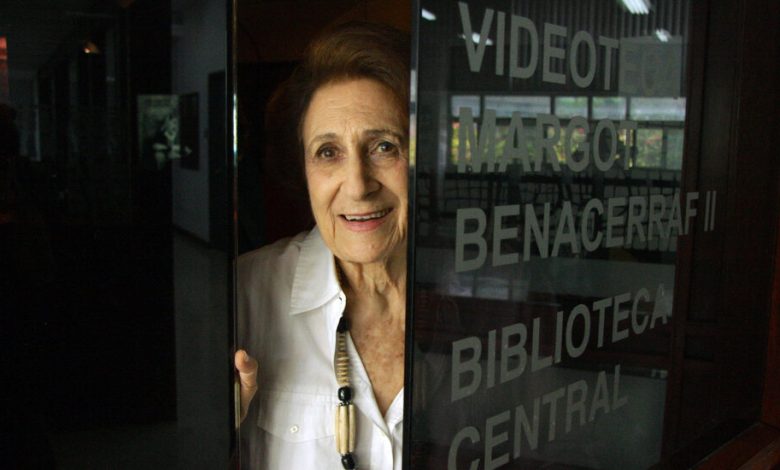Margot Benacerraf, Award-Winning Venezuelan Documentarian, Dies at 97

Margot Benacerraf, a critically acclaimed Venezuelan documentary filmmaker whose hypnotic “Araya,” a visual tone poem chronicling the daily lives of salt workers on an austere peninsula on her country’s coast, shared the critics’ prize at the 1959 Cannes Film Festival, died on Wednesday in Caracas. She was 97.
Her death was announced by the country’s culture minister.
Hailed as a major figure of Latin American cinema, Ms. Benacerraf founded Venezuela’s national cinematheque and in 2018 was given the Order of Francisco de Miranda, honoring outstanding merit in the sciences and humanities, by the country’s president, Nicolás Maduro.
But although Ms. Benacerraf was celebrated, she was not prolific. She made only two films in her career: “Reverón” (1952), a 23-minute documentary short about the reclusive later years of the Venezuelan artist Armando Reverón, and “Araya,” her sole feature-length work.
Influenced by the magic realism of novelists like Gabriel García Márquez and Alejo Carpentier, Ms. Benacerraf captured, in 90 minutes, the sweat and toil of workers amid the towering salt pyramids on the centuries-old mining terrain of the Araya peninsula. “Araya” shared the International Federation of Film Critics award at Cannes in 1959 with Alain Resnais’s landmark New Wave film, “Hiroshima Mon Amour.”
In 2019, the New Yorker film critic Richard Brody called “Araya” a “majestic documentary portrait” of salt producers and their families. “Benacerraf’s grand style,” he wrote, “captures the drama of subsistence in the face of nature,” adding that “the overwhelming beauty of the wide-open spaces contrasts with the workers’ burdened trudges through them.”
